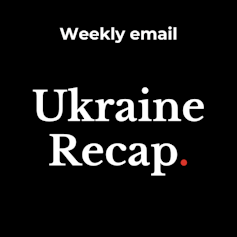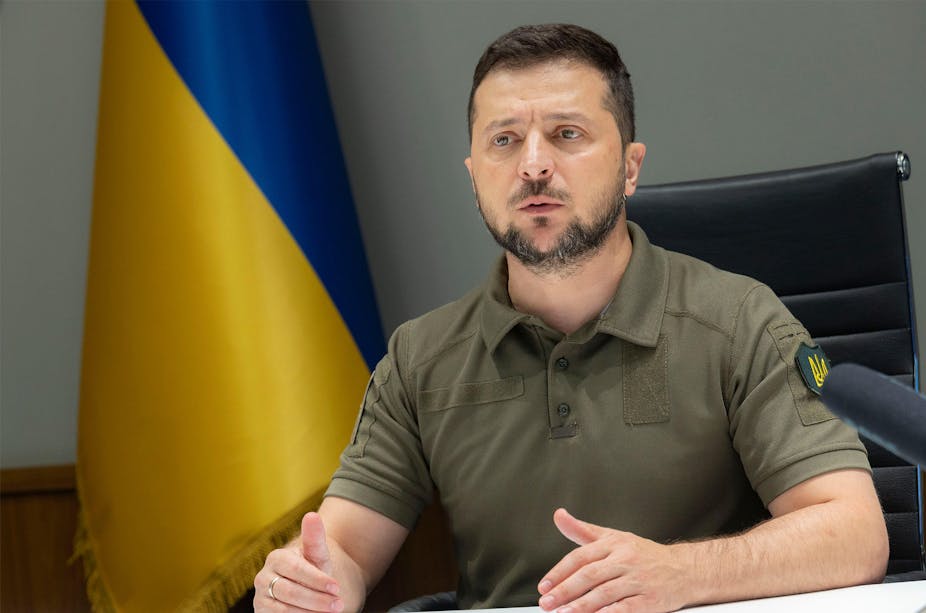The death this week of Mikhail Gorbachev, the last leader of the Soviet Union, who presided over its disintegration at the end of the 1980s, prompted an avalanche of tributes. These came mainly from outside Russia – where he was viewed with considerable ambivalence by much of the population who blame him for the mess they find themselves in. His reputation was also tarnished in a number of former Soviet satellites, where he used troops to put down nationalist demonstrations with considerable loss of life.
But he was a darling of the west, which saw him as the “man who ended the cold war” and feted him for opening up Soviet society and encouraging pluralism. But the truth is more nuanced – isn’t it always? Alexander Titov, an expert in Russian politics at the Queen’s University Belfast, who grew up in the USSR and professes himself to be a beneficiary of Gorbachev’s campaigns of perestroika and glasnost, writes that by the former Soviet leader’s own lights, he failed at what he had planned to do. Far from revitalising the Soviet Union, glasnost precipitated the collapse of the USSR, writes Titov, while perestroika – Gorbechev’s plan to restructure the Soviet economy, paved the way for the rise of the kleptocracy.
Read more: Mikhail Gorbachev's legacy: sadly, history will judge this good man harshly
As a journalist I was always excited at the idea of glasnost, that under Gorbachev you wouldn’t get shut away in the gulag system for criticising the government. And the mid-1980s were indeed heady days for journalists in the Soviet Union. But as Jennifer Mathers – a Russia scholar at the University of Aberystwyth – notes, Gorbachev had intended glasnost as a tool rather than a freedom, opening the door to the press with the intention they would be useful in promoting his policies. The press, writes Mather, were the ones who kicked the door down. And Vladimir Putin has been busily nailing that door shut for two decades.
Read more: Gorbachev and glasnost: how his fragile legacy of free speech has been destroyed by Putin

This is our weekly recap of expert analysis of the Ukraine conflict. The Conversation, a not-for-profit newsgroup, works with a wide range of academics across its global network to produce evidence-based analysis. Get these recaps in your inbox every Thursday. Subscribe here.
But on balance the former Soviet supremo must surely come out on the plus side of the ledger, if only for his role in ushering in an era of arms reduction treaties. In fact, according to security and defence expert Dan Plesch, from SOAS, University of London, thanks to the 1987 INF treaty which he negotiated with then US president Ronald Reagan, Vladimir Putin has been deprived of a whole class of intermediate range missiles, banned under the treaty, which would otherwise give the Russian leader the capability to hit targets as far away as Lviv on the Polish border in the far west of Ukraine.
Read more: Ukraine war: how Gorbachev's 1987 INF missile treaty has limited the arsenal available to Putin
On the battlefield
Of course, Putin has more pressing concerns on his mind at the moment. This week we witnessed the start of Ukraine’s southern offensive, which is focused on the strategically critical Kherson region, occupied by Russia since the early days of the invasion and which has given Putin a key part of his oft-discussed aim to secure a land bridge across the vital Black Sea coast.

Announcing the counteroffensive, the Ukrainian president, Volodymyr Zelensky, issued a warning to Russian troops to flee or surrender if they want to survive. Stefan Wolff, international security expert from the University of Birmingham, walks us through how Ukraine managed to get to a position to launch this massive push in the south which he writes shows that Kyiv has been able to seize the initiative on the battlefield.
Read more: Ukraine war: the push to recover Kherson in the south is on – will it succeed?
Wolff also gives us his verdict on the state of the war six months in and concludes that the only way to get Russia to the negotiating table in any meaningful sense will be to increase the costs in men and materiel to the extent that Russia is irresistibly incentivised to sue for peace.
Read more: Ukraine war: six months on the only way to resume negotiations is to increase cost to Russia
That Ukraine feels confident enough to launch a major counteroffensive in the south is partly due to having effectively neutralised Russia’s naval presence in the northwestern Black Sea. With the sinking of its flagship battle cruiser Moskva in April and the retaking of Snake Island at the end of June, Ukraine has eroded Russia’s ability to operate safely at sea in the area and has stymied – for now at least – any chance of an amphibious assault on the key port city of Odesa.
Maritime security expert, Basil Germond, of Lancaster University, believes Russia’s lack of sea power in this conflict could prove crucial in the long term.
Read more: Ukraine war: how Kyiv's southern offensive will exploit Russia's naval vulnerabilities
Members of the International Atomic Energy Agency (IAEA) have spent several hours today examining the Zaporizhzhia nuclear power plant, Europe’s biggest, which remains under Russian control, while being operated by Ukrainian technicians under duress. There have been tit-for-tat claims of shelling by both sides, which is extremely worrying for a region which knows only too well – after the disaster at Chernobyl in 1986 – what might happen if this massive plant is damaged by shelling or denied the power to run cooling systems. Ross Peel, of King’s College London, whose specialisms include nuclear energy politics, safeguards and security, has the story.
Weaponising energy politics
Russia closed down its Nord Stream 1 pipeline again this week, citing apparent technical problems. It is alleged that it is instead burning off gas at a daily rate of $10 million (£8 million) worth at a plant near the Finnish border. As Stephen Hall, who specialises in Russian politics at the University of Bath, notes, gas is Moscow’s biggest economic weapon, so we are likely to see more of this as the days grow colder and the nights longer. Europe appears to be maintaining a solid front on sanctions, but maintaining this will take a great deal of political will in the months ahead.
Read more: How Russia is using gas as a political tool to win support for the Ukraine war
The UK’s exposure to Russian gas is far smaller than many other European countries, but it remains sensitive to fluctuations in global energy prices, particularly liquified natural gas, writes Warwick Business School’s Michael Bradshaw. Part of the problem, he explains, is a lack of storage capacity. This has left the country vulnerable to price volatility. And, while the UK gets 60% of its energy from renewables, its market is structured so that prices are currently set by the most expensive unit produced, which is gas.
Read more: Energy crisis: why the UK will be at the mercy of international gas prices for years to come
Culture war
It’s been reported that, since the beginning of the war, there has been a considerable increase in the numbers of Russian Jews leaving the country for fear of persecution – one in eight of the country’s Jews are understood to be leaving to seek a more secure future in other countries. Many European countries have a shameful history of persecuting Jewish people, but this is the fourth wave of exiles from Russia in the past 100 years, according to Bath University’s Stephen Hall. Significantly, Moscow’s chief rabbi, Pinchas Goldschmidt, left Russia in July after the authorities put pressure on him to support the war in Ukraine.
Read more: Jews are leaving Russia again – is history repeating itself?
Ukraine Recap is available as a weekly email newsletter. Click here to get our recaps directly in your inbox.

